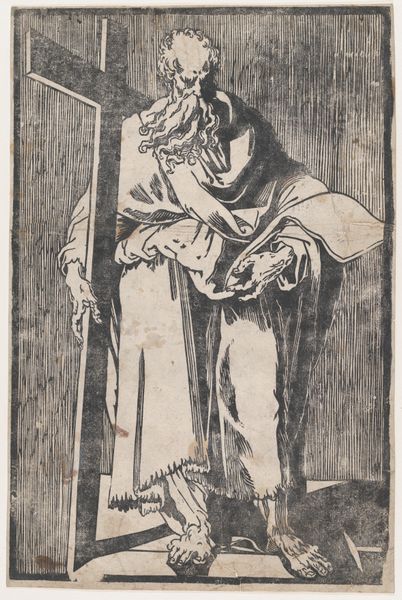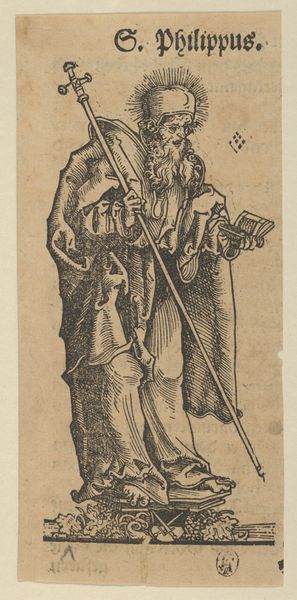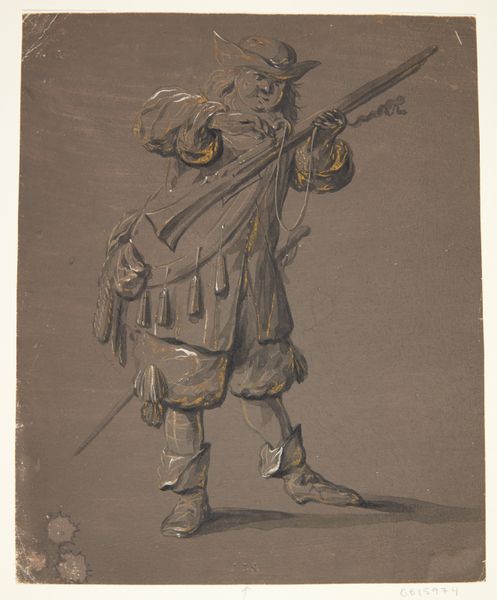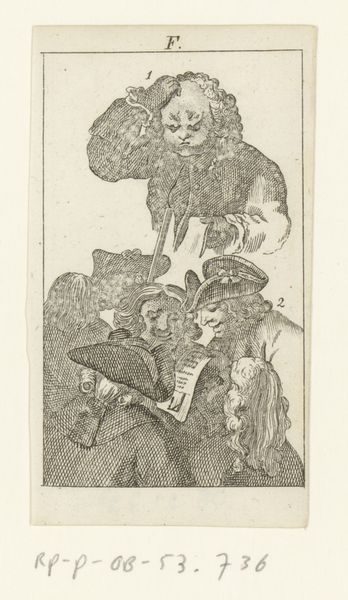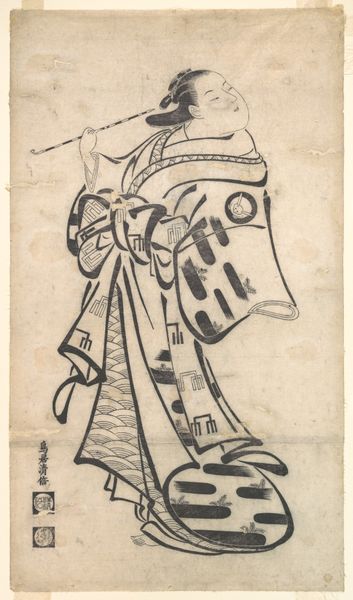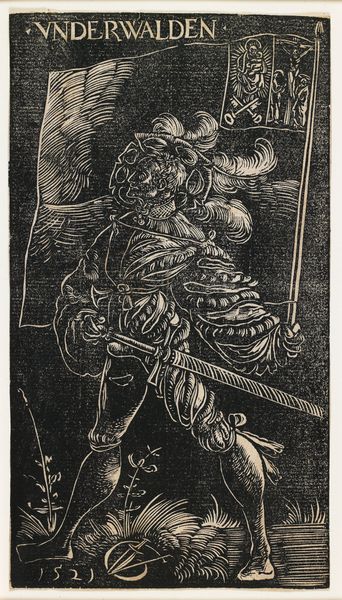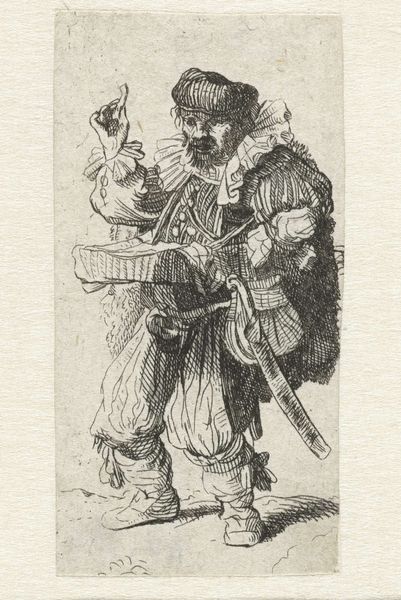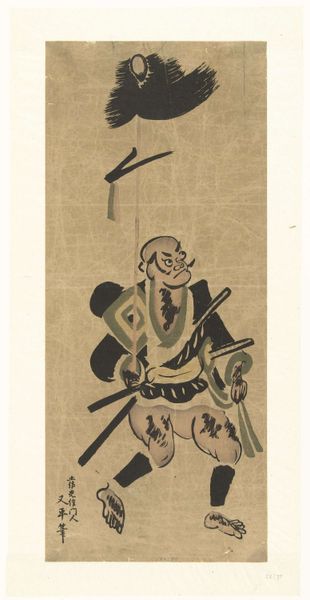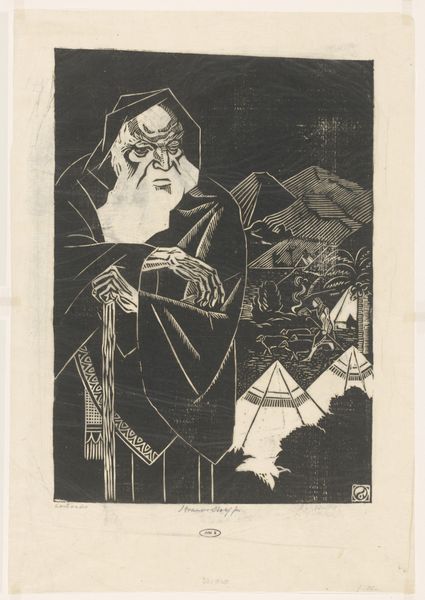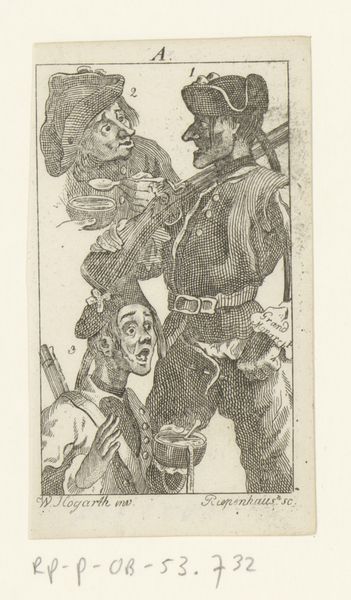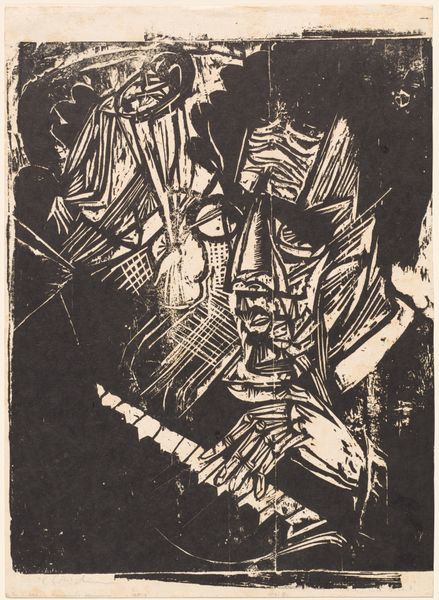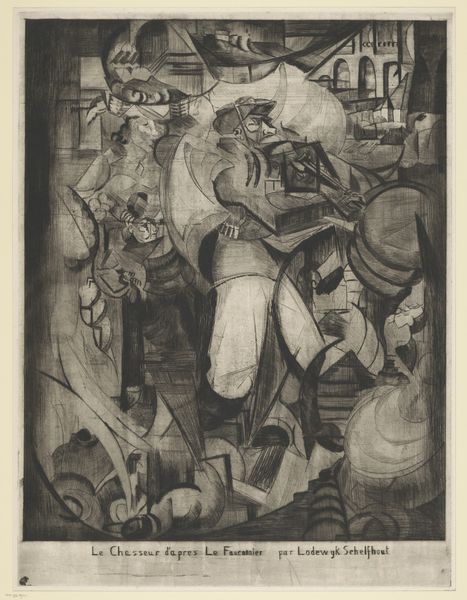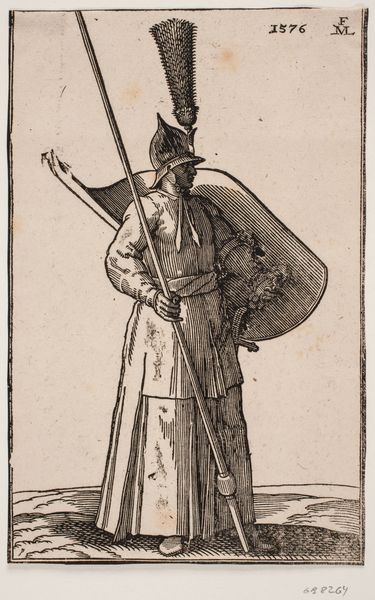
painting, textile, ink
#
portrait
#
painting
#
asian-art
#
textile
#
ukiyo-e
#
japan
#
figuration
#
ink
Dimensions: 188 1/4 × 42 in. (478.16 × 106.68 cm) (with tabs)
Copyright: Public Domain
Curator: Standing before us is a 19th-century Japanese festival banner portraying Shōki, traditionally regarded as a vanquisher of demons. Editor: Vanquisher, indeed. Just looking at the intense scowl, those powerful arms... the sheer blackness of the ink washes has me already running for the hills. There’s such an incredible tension, a pent-up force about to be unleashed. Curator: Absolutely, there's an immediate impact. The work’s crafted with ink on textile. Think about it – not just an image, but a designed, fabricated object, presumably hung high. Consider the scale needed for visibility, the stitching... Someone spent time producing this not merely as 'art' but as an integral part of public ritual. Editor: Right, because that changes everything. The material shifts the interpretation—it’s less about rarefied skill than collective expression, wouldn't you say? This wasn’t destined for a hushed gallery; it's a work meant to withstand weather and the boisterous energy of a festival, and to do its job! And look at those almost violently applied ink strokes; you can almost hear the maker's rhythmic breathing and focused movements. Curator: Precisely! Also, think of Shōki's traditional role – not just scaring off demons, but warding off illness too, very vital concerns within that social sphere. It's more than art; it's social intervention. In Japanese art, these festival banners became a distinct mode of representing popular stories and religious icons. The composition reflects traditional ukiyo-e aesthetics but rendered boldly. Editor: This piece just hums with this history. Thinking about all the labor of sourcing materials, mixing inks, priming, the very real work in preparing for this communal ceremony… that's equally captivating. Curator: It makes me wonder about the artist’s perspective; Were they hoping to inspire awe? Bring a little joy or security during difficult times? Maybe it's both, because for me there's beauty alongside all of this inherent tension and purpose. Editor: Well, that’s an image hard to forget and labor hard to ignore! Makes you think differently about "art" when you realize how grounded it could be in tangible acts of labor.
Comments
minneapolisinstituteofart about 2 years ago
⋮
Originally, banners were used on battlefields for troop identification, but in the Edo period (1603–1868) they were used for more civic purposes. Banners became a central element of the display for Boy's Day on the fifth day of the fifth lunar month. The special day was meant to inspire boys to be disciplined, brave, and honorable, and artists who created banners frequently chose subjects supporting that message. This unique hand-painted banner illustrates Shōki, the powerful demon queller who originated in China, where he became popular in folklore during the reign of Emperor Xuanzong (712–756).
Join the conversation
Join millions of artists and users on Artera today and experience the ultimate creative platform.
